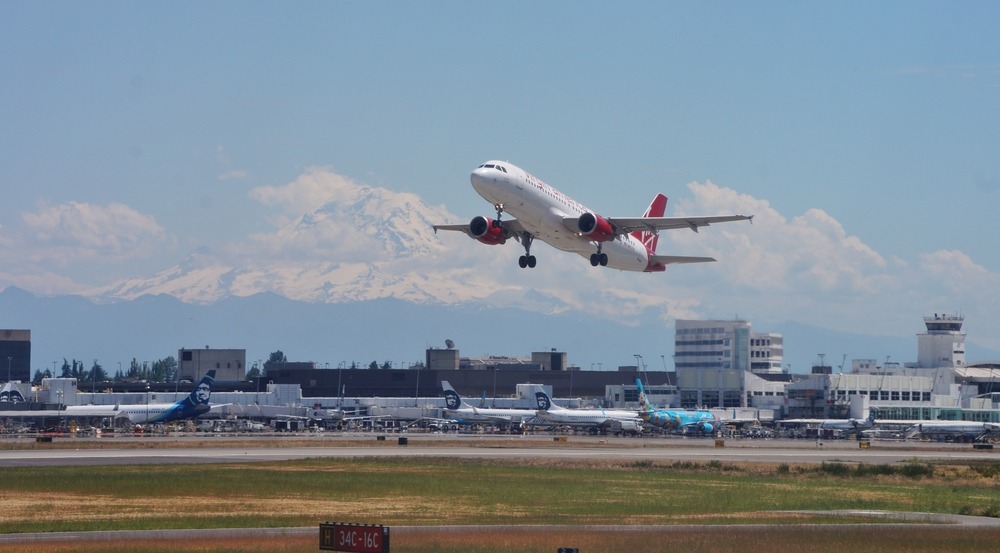
At least 10 percent of jet fuel on hand at the Seattle-Tacoma International Airport (Sea-Tac) will be sourced from local, sustainable resources within 10 years, and the threshold will increase to 50 percent by 2050, according to plans recently approved by the Port of Seattle Commission.
The commission approved a motion on Dec. 21 that outlines a five-point to build a market for domestic sustainable aviation fuels (SAF) at commercially competitive rates. This marks the first time that a United States airport has established a timetable and plan to transition to sustainable fuel sources.
Key points of the five-point plan include support of state and federal legislation that establishes cost-effective regulations, advocacy for new FAA grant programs that support SAF markets, partnership with local agencies to build market demand for SAF, and mutual financial investments between the port and its partners.
”The tremendous growth of our airport needs to be met with equally bold efforts to reduce impacts on the environment and the health of the surrounding communities,” Port of Seattle Commissioner Fred Felleman said. “I’m so fortunate to be able to help carry on the great work Commissioner (John) Creighton has pioneered to keep Sea-Tac a national leader in sustainable aviation fuels.”
A goal of the Port of Seattle Century Agenda is to reduce greenhouse gases that the port doesn’t have direct control over by 50 percent by 2030 and to use conservation methods and renewable fuel sources to meet increased energy needs going forward.
“There are innumerable innovative and world-changing ideas that come from our state,” Washington State Gov. Jay Inslee said. “We’re the birthplace of aviation. The technology companies that have changed the course of our daily lives got their start here. And now we are leading on environmental innovations that will transition this industry away from harmful fossil fuels. The work that the Port of Seattle, in a partnership with other statewide leaders like Boeing, Alaska Airlines, and WSU, is a perfect example of this innovative spirit that will change our world. We are proud to support their effort, and to continue to keep our state on the leading edge.”